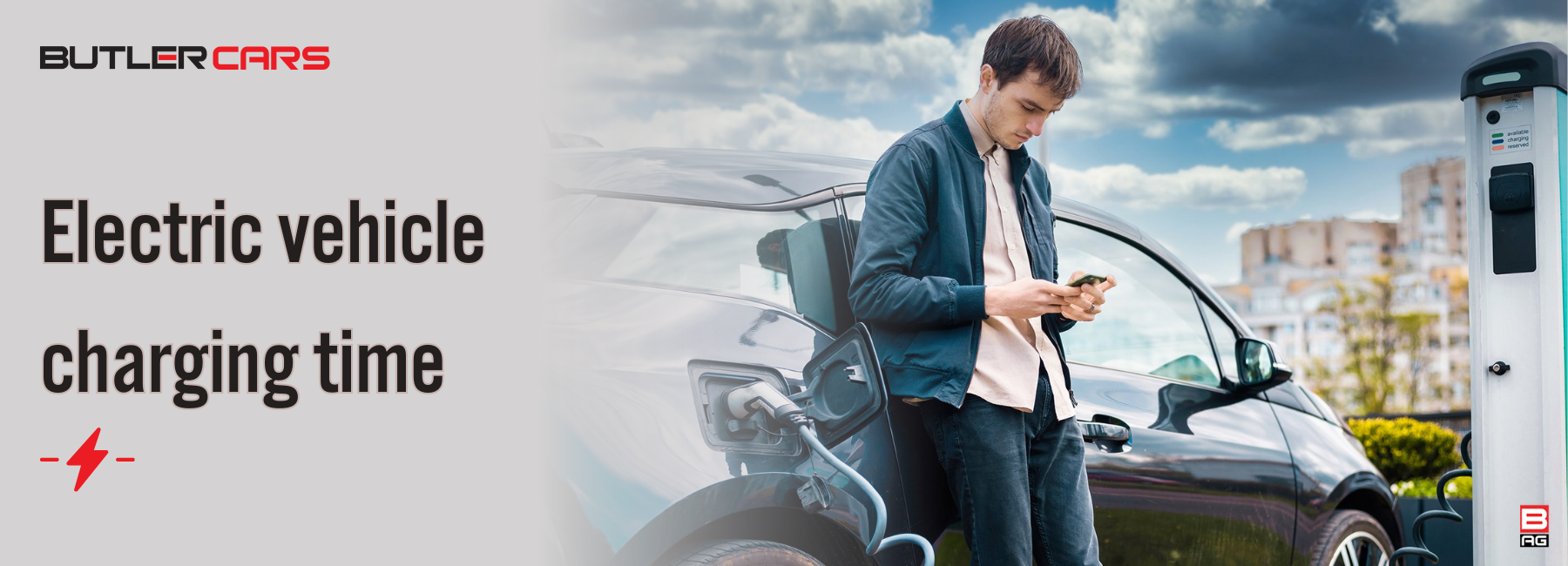How Long Does It Take To Charge An EV

Factors That Impact EV Charging Times
Toyota Prius Prime Charging
Your Vehicle’s Charging Capabilities
First and foremost, it’s important to consider what type of charging capabilities your vehicle is equipped with. Found on virtually all electric vehicles is what’s known as Level 1 charging which uses 120 volts like a standard household outlet. Next, Level 2 charging relies on an outlet similar to larger household appliances like a washing machine or refrigerator at 240 volts. Finally, Level 3 charging is also known as fast charging. This is the type that you’ll find at many public charging stations. Knowing which of these types of charging levels come standard on your EV will help you make the best decision when deciding where to charge.
Your EV’s Battery & Charging Capacities
In general, the larger your battery capacity the more time you’ll need to reach a full charge. Another simple rule of thumb to remember is that it takes roughly 10 hours to regain 50 miles of driving range using Level 1 charging (a 120-volt household outlet). Remember, Level 1 is considered the slowest way to charge your EV. A smaller battery capacity and higher charging strength will lead to quicker charge times. Conversely, a larger battery and slower charging strength will lead to longer charge times.
Other Factors to Consider
You might be surprised to learn that the weather in your area can impact how fast or slow your vehicle is able to charge. Extreme heat can reduce the effectiveness of your EV’s thermal management systems and ultimately its efficiency. Similarly, extreme cold temperatures can also lead to longer charge times. Just like a gasoline-powered car, driving with an extremely low battery charge can leave you facing a long charge time or even worse, leaving you stranded on the side of the road.
How Long Does It Take to Charge an EV
Porsche Taycan Charging
Now that we’ve covered the various factors that can have an impact on an EV’s charging capabilities, it’s time to get the answers you’ve been looking for. Below, you’ll find a general estimate of how many miles of charge you’ll gain by using different charging strengths. Remember, these are only general estimates and can vary by manufacturer.
Miles of Range Gained Per Hour of Charging
3.7 kW (Slow) 7 kW (Medium) 22 kW (Medium) 43-50 kW (Fast) 150 kW (Fastest)
Up to 15 Miles Up to 30 Miles Up to 90 Miles Up to 90 Miles (30 Minutes) Up to 200 Miles (30 Minutes)
At home, you’ll typically find 3.7 kW or 7 kW outlets available for use. 22 kW charge points are less common, require three phase power, and require professional installation. 43-50 kW and 150 kW charge points are the most common types of public fast charging stations currently available. Typically, all electric cars can charge on compatible charge points with a voltage rating higher than they can handle. They will charge at the maximum rate that they can accept.
Battery and charging technology is improving at a rapid pace with the widespread adoption of electric vehicles. You can expect more breakthroughs in the coming years that will lead to greater accessibility of charging stations, improved range, and faster charging times. There’s never been a more exciting time to consider driving an electric vehicle!

